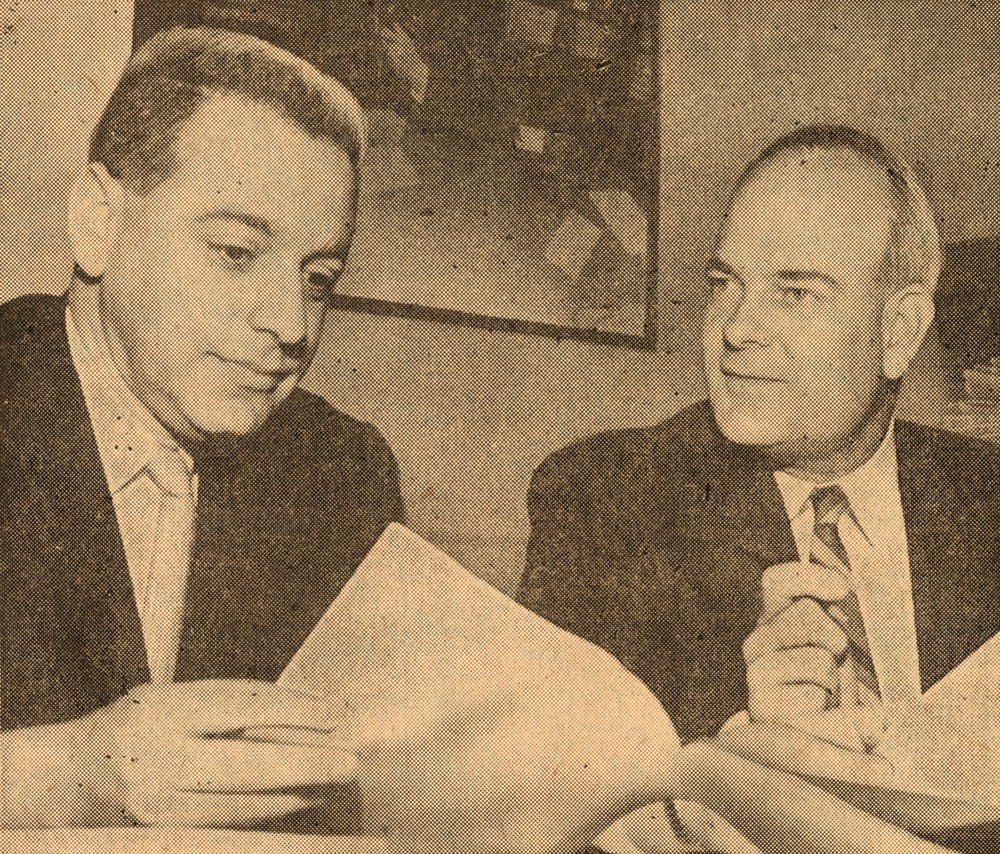Editor’s note: The Chronicle thanks The State Historical Society of Missouri (SHSMO) for permission to republish this piece from its Missouri Times magazine.
Paging through the newly processed Howard Frederic Sachs Papers gives an excellent view of not only Sachs’ storied career in law and his work on civil rights issues, but also the history of Kansas City’s Jewish community from the 1950s to the 1970s. Sachs was a prominent Kansas City lawyer at the firm of Spencer, Fane, Britt, and Browne from 1951 to 1979. He was then nominated as a judge on the U.S. District Court for the Western District of Missouri by President Jimmy Carter and was confirmed in 1979. His papers were donated to SHSMO, along with the papers of 11 other federal judges, as part of a generous contribution from the Western District of Missouri Historical Society. The Sachs collection contains personal research and correspondence, materials from Sachs’s work with local Jewish organizations and legal materials from many of the cases that he worked on.
Sachs advocated for the interests of the Jewish community in Kansas City and served on multiple Jewish organizations. He also worked with Kansas City historian Frank Adler on research for the 100-year history of The Temple, Congregation B’nai Jehudah, “Roots in a Moving Stream.”
He notably advocated for religious freedom by working to remove mandatory prayers and other religious activities from local schools. In response to a letter from Congressman William J. Randall, who argued that school prayer was popularly supported by his constituents, Sachs wrote that the inclusion of mandated prayer “would usurp parental rights in guiding the religious development of children, and which will lead to needless controversy between religious sects.”
Sachs also worked to combat antisemitism and discrimination in Kansas City social clubs. When it appeared that Jewish people were not welcome in prominent clubs such as the University Club, the Kansas City Club and the River Club, Sachs corresponded with their leadership, government officials and other prominent Kansas City businessmen. He made it clear that discrimination based on religion was unacceptable and that organizations should boycott these clubs until their policies changed. Sachs argued that “the Jewish community and Jewish families in Kansas City need to know that there are opportunities here at home.” His actions helped lead to the Kansas City Club admitting Jewish members. Sachs was accepted into the Downtown Club in 1964.
Sachs extended his efforts to influence other civil rights issues in Kansas City as well. He was the chairman of the legal committee of the Kansas City Commission on Human Relations. In this position, he helped draft the first civil rights ordinance adopted in Missouri. He also worked to desegregate the schools in Kansas City following the U.S. Supreme Court’s 1954 Brown decision that prohibits states from segregating public school students because of race. Sachs also worked on the public accommodations ordinance of 1963, which required theaters, bars and other Kansas City businesses to accept people of color as patrons. He also advocated for the Fair Housing Act of 1968, which banned discrimination in housing and real estate.
At age 99, Sachs is still serving as a federal judge. His papers offer researchers insight into the Jewish community as well as social justice issues affecting Kansas City in the latter half of the 20th century. The Howard Frederic Sachs Papers are available to view at the Kansas City Research Center.
Syd Stoll is an archivist at the Kansas City Research Center. More information about SHSMO and MIssouri Times is available at shsmo.org.



